Salvador de Bahia, often simply called Salvador, is one of Brazil’s most vibrant and culturally rich cities. Located on the country’s northeast coast, Salvador is the capital of the state of Bahia and is known for its unique blend of African, Indigenous, and European influences. This dynamic city offers visitors a deep dive into Brazil’s rich history, lively traditions, and stunning landscapes.
A Historical and Cultural Hub of Salvador de Bahia
Salvador is one of the oldest cities in the Americas, founded in 1549 as the first capital of colonial Brazil. Its historic center, known as the Pelourinho, is a UNESCO World Heritage site, filled with cobblestone streets, colorful colonial buildings, and baroque churches that tell the story of the city’s colonial past.
The São Francisco Church and Convent is a must-visit, famous for its opulent gold-leafed interior and stunning tilework. The Cathedral of Salvador, another architectural marvel, showcases the rich history of the region. As you wander through the Pelourinho, you’ll encounter the beating heart of Bahian culture, from capoeira performances in the squares to the sounds of samba and axé music emanating from every corner.
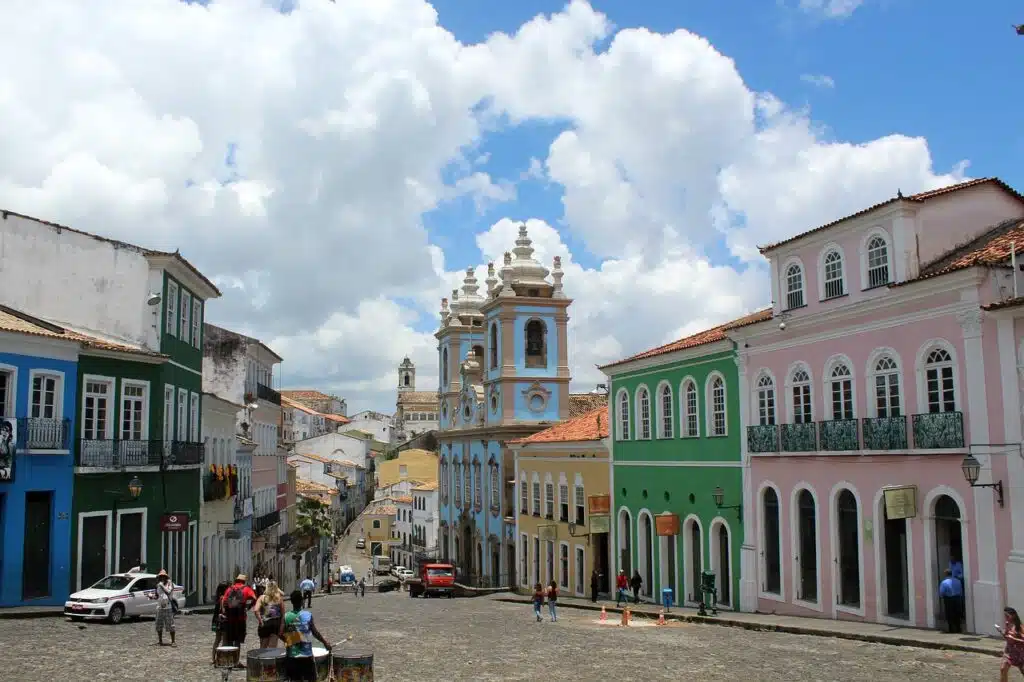
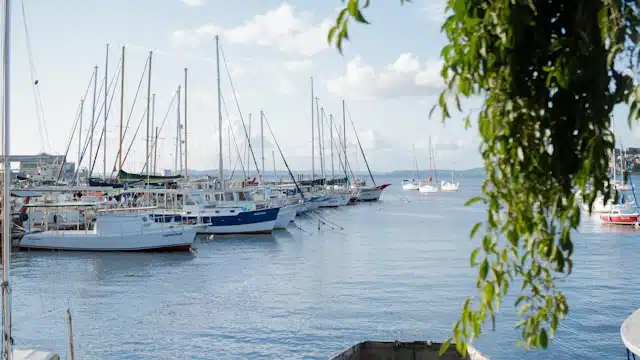
The African Influence
Salvador is often referred to as the “Black Rome” due to its significant African heritage, the result of the transatlantic slave trade that brought millions of Africans to Brazil. This influence is palpable in the city’s music, dance, religion, and cuisine.
One of the most visible manifestations of African culture in Salvador is the Candomblé religion, a syncretic faith that blends African spiritual practices with Catholicism. Visitors can explore this aspect of Bahian culture by visiting a Candomblé house or attending a public ceremony.
The city is also famous for its Carnaval, considered one of the most authentic and lively in Brazil. Unlike Rio de Janeiro’s glitzy parades, Salvador’s Carnaval is a more street-oriented celebration, where locals and visitors dance together to the rhythms of Afro-Brazilian music.
Stunning Beaches and Natural Beauty
Salvador is blessed with some of the most beautiful beaches in Brazil. The city’s coastline stretches for miles, offering everything from bustling urban beaches to tranquil, secluded spots.
Porto da Barra is one of the most popular beaches, located close to the city center. It’s a favorite spot for both locals and tourists, thanks to its calm waters, perfect for swimming, and stunning sunset views. For a more laid-back experience, head to Flamengo Beach or Stella Maris, both known for their soft sands and great surfing conditions.
Beyond the beaches, the Bay of All Saints (Baía de Todos os Santos) is a natural wonder. It’s the largest bay in Brazil and offers opportunities for sailing, diving, and island-hopping. Ilha de Itaparica and Ilha dos Frades are two of the most popular islands in the bay, each offering unique experiences ranging from historic towns to pristine beaches.
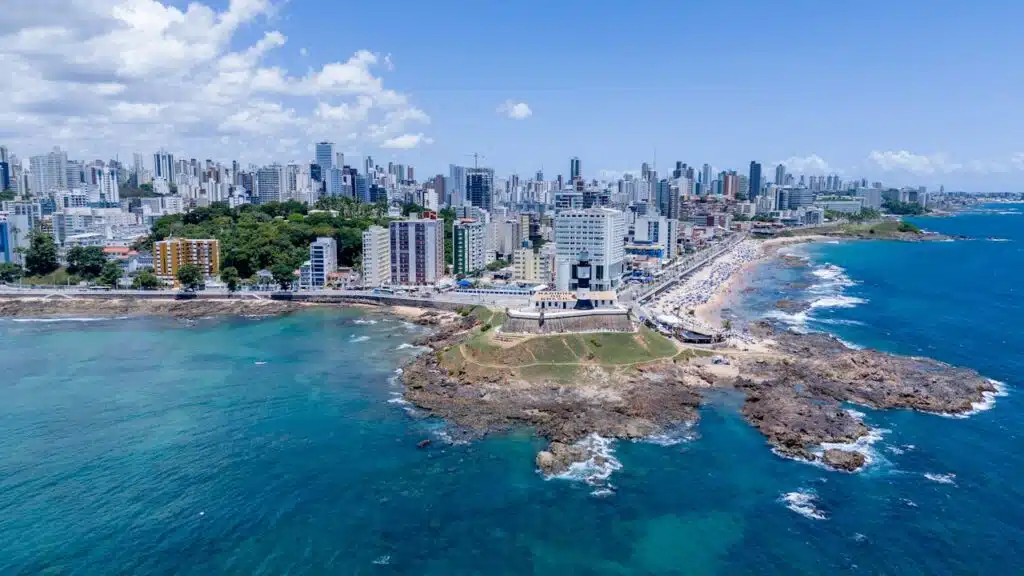
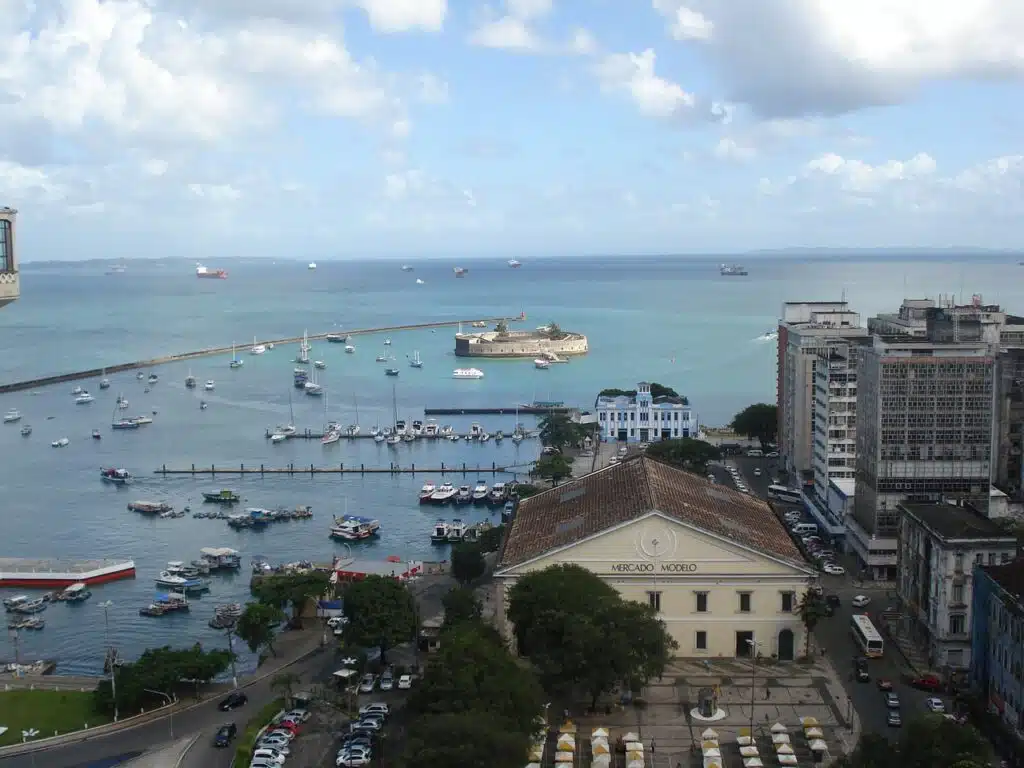
Bahian Cuisine: A Feast for the Senses
Salvador is a paradise for food lovers, offering a cuisine that is as vibrant and diverse as its culture. Bahian food is heavily influenced by African, Indigenous, and Portuguese traditions, creating a unique and flavorful culinary experience.
Acarajé, a must-try street food, is perhaps the most famous dish. These deep-fried balls made from black-eyed peas are filled with vatapá (a spicy shrimp paste) and served with hot pepper sauce. Moqueca is another iconic dish, a rich seafood stew made with coconut milk, dendê oil (palm oil), and a variety of spices. Both dishes reflect the African roots of Bahian cuisine.
For dessert, try quindim, a sweet, coconut-based treat, or bolo de rolo, a thin, rolled cake filled with guava paste. Don’t forget to sample caipirinha, Brazil’s national cocktail, made with cachaça, sugar, and lime—it’s the perfect way to cool down after a day of exploring.
Tips for Visiting Salvador
When to Visit Salvador
Salvador enjoys a tropical climate, making it a year-round destination. However, the best time to visit is during the dry season, from December to March, when the weather is warm and sunny, perfect for beach days and outdoor activities.
If you want to experience Salvador’s famous Carnaval, plan your visit around February or early March. This is when the city comes alive with music, dance, and endless celebrations, offering a truly unforgettable experience.
Getting to and Around Salvador
Salvador is well-connected by air, with Deputado Luís Eduardo Magalhães International Airport offering flights to and from major cities in Brazil and beyond. Once in Salvador, getting around is easy thanks to the city’s extensive public transportation system, which includes buses, taxis, and rideshare services.
The historic center, Pelourinho, is best explored on foot, allowing you to fully appreciate the architecture and vibrant street life. For exploring the beaches and more distant attractions, renting a car or taking a taxi is recommended.
Experience the Magic of Salvador de Bahia
Salvador de Bahia is a city that captures the essence of Brazil’s rich cultural heritage and natural beauty. From its historic streets and lively festivals to its stunning beaches and delicious cuisine, Salvador offers an immersive and unforgettable travel experience.
Whether you’re drawn by the city’s history, its vibrant music and dance, or simply the allure of its tropical beaches, Salvador is a destination that promises to enchant and inspire. A visit to Salvador de Bahia is more than just a trip—it’s a journey into the heart and soul of Brazil.

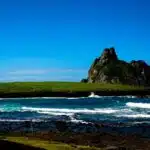
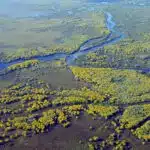
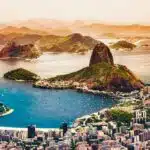
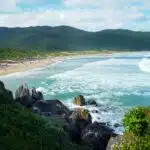
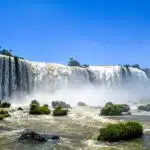
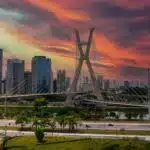
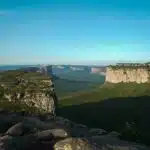
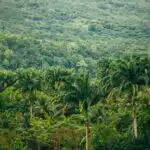
Brazil’s city like sarvadal has best cultural international atractiive natural inamazon